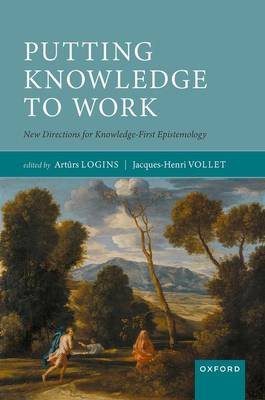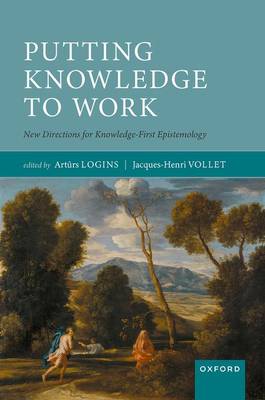
- Afhalen na 1 uur in een winkel met voorraad
- Gratis thuislevering in België vanaf € 30
- Ruim aanbod met 7 miljoen producten
- Afhalen na 1 uur in een winkel met voorraad
- Gratis thuislevering in België vanaf € 30
- Ruim aanbod met 7 miljoen producten
Zoeken
Putting Knowledge to Work
New Directions for Knowledge-First Epistemology
Arturs Logins, Jacques-Henri Vollet
Hardcover | Engels
€ 217,95
+ 435 punten
Omschrijving
In the 21st century knowledge-centered approaches have become increasingly popular in analytic epistemology. Rather than trying to account for knowledge in other terms, these approaches take knowledge as the starting-point for the elucidation of other epistemic notions (such as belief, justification, rationality, etc.). Knowledge-centered approaches have been so influential that it now looks like epistemology is undergoing a factive turn. However, relatively little has been done to explore how knowledge-centered views fare in new fields inside and beyond epistemology. This volume aims at remedying this situation by putting together contributions that investigate the significance of knowledge in debates where its roles have been less explored. The goal is to see how far knowledge-centered views can go by exploring new prospects and identifying new trends of research for the knowledge-first program. Extending knowledge-centered approaches in this way not only promises to deliver novel insights in these neglected fields, but also to revisit more traditional debates from a fresh perspective. As a whole, the volume develops and evaluates the knowledge-first program in original and fertile ways.
Specificaties
Betrokkenen
- Auteur(s):
- Uitgeverij:
Inhoud
- Aantal bladzijden:
- 346
- Taal:
- Engels
Eigenschappen
- Productcode (EAN):
- 9780192882370
- Verschijningsdatum:
- 7/09/2024
- Uitvoering:
- Hardcover
- Formaat:
- Genaaid
- Afmetingen:
- 155 mm x 229 mm
- Gewicht:
- 635 g

Alleen bij Standaard Boekhandel
+ 435 punten op je klantenkaart van Standaard Boekhandel
Beoordelingen
We publiceren alleen reviews die voldoen aan de voorwaarden voor reviews. Bekijk onze voorwaarden voor reviews.







